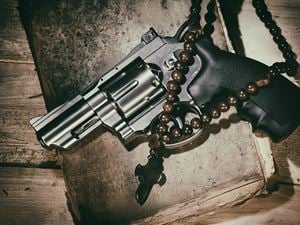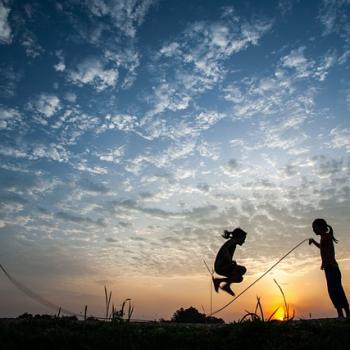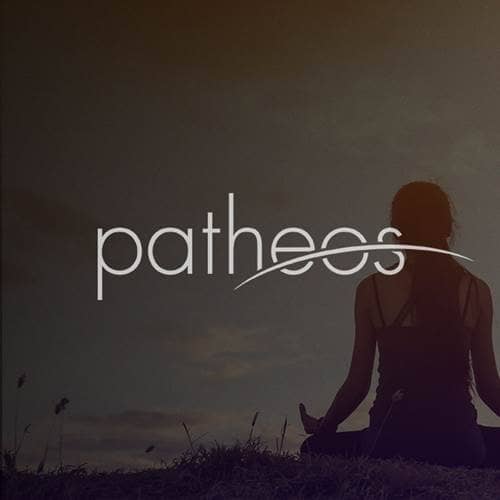
The tension between the sacred nature of life and the importance of defending oneself, family, or nation, has probably existed since the beginning of time. If life is sacred, then shouldn’t it be defended? And if there is a God who created all life, then wouldn’t He want His creations to respect all that He has created—including all life?
While the scriptural canon of most religions predates the existence of any guns, nevertheless, weapons, violence, and the sacred nature of life are often mentioned in scripture. Consequently, practitioners of faith need to take a holistic view of what their holy books say about these matters; never stripping of context the various verses which might appear to support one view or the other.
Weapons in Scripture
Not surprisingly, guns are simply not discussed in ancient scripture. However, several texts revered as “holy writ” have verses that mention the use of weapons, often in the context of warfare, the enforcement of religious or national laws, in self-defense, or even as symbols of spiritual survival. For example, Hinduism (which has some of the oldest scriptural books) often refers to the use of weapons, including astras—which are “divine weapons” having “supernatural powers.”
For example, the Bhagavat Gita tells the story of Lord Krishna encouraging Arjuna (a great warrior) to fight a “righteous war.” In the Islam’s holy book, the Qur’an, Allah speaks of using weapons for self-defense, saying: “Fight in the way of Allah against those who fight against you, but begin not [the] hostilities. Lo! Allah loveth not aggressors.” (Sūrha 2:190, Pictkhall Translation, emphasis added) The Jewish canon highlights the battle between good and evil when it speaks of the youthful David taking up a sword and cutting off the head of the giant, Goliath. (1 Samuel 17:51)
Similarly, in the context of the spiritual battle believers face in mortality, the Christian New Testament commands devotees to “put on the whole armor of God”—including taking up the “sword of the Spirit.” (Ephesians 6:11-17) The battle described here is spiritual, but the metaphor compares it to a literal war.
In a similar vein, the 10th Guru of Sikhism (Guru Gobind Singh) established the Khalsa, a military order organized to defend their heavily persecuted faith. However, in the Guru Granth Sahib (the Sikh canonical book) it warns, “you may have armies well-equipped with weapons,” but you still need to “remember the Supreme Lord God” or you will be “consigned to the most hideous hell!” (Guru Granth Sahib, Ang 188)
The emphasis in Sikhism is that those obligated to fight in order to defend their people need to be “saintly soldiers.” While Buddhism has been one of the great pacifistic religious of the world, nevertheless, Mahayana Buddhist texts still speak of Bodhisattvas (or enlightened quasi-savior-beings) who use swords to “cut through” ignorance or false belief, thereby enabling others to achieve spiritual enlightenment as well.
Clearly, for righteous purposes, in self-defense, and as metaphors for overcoming the sinful world, the various scriptural canons often speak of the acceptable use of weapons in some higher purpose or work. Each of these passages limit the use of weapons, but acknowledge some practical and even necessary use of them—contingent upon the circumstances, and not as the aggressor.
Capital Punishment in Scripture
In addition to numerous mentions of the use of weapons, various canonical books also contain passages which either speak of capital punishment or are seen (by believers) as supporting something akin to the death penalty. For example, in the Jewish and Christian scriptures murder (among other things) is listed as a capital offense. (Gen. 9:6. See also Rom. 13:4; Deut. 22:22; Lev. 24:16; Numb. 15:35)
In Islam’s Qur’an, murder (along with other sins) is also described as sufficient for authorized officials to take the murderer’s life. (Sūrha 2:178. See also 24:2)
While Hinduism’s canon is not replete with references to capital punishment, the authoritative Manusmriti does state that a king should practice “corporal punishments” upon “the wicked”—and that God will “sanctify” the ruler for doing so. (“Laws of Manu” 8.311) Scriptural references, such as these, are very rare. In addition, they do not grant rights to religious laity or non-government officials to implement capital punishment on another human being. (In other words, they do not support gun violence as a civilian response to a given matter.)
The minute number of verses which discuss this topic only suggest that there may be times or situations in which a government or a religious institution would have to manage this level of punitive response, but only for infractions so heinous to the state and religion that capital punishment is deemed the only possible penalty.
Importance of Life Emphasized in Scripture
With all the mention of the legitimacy of self-defense, justifiable war, and even capital punishment, scripture consistently balances those kinds of statements with the frank recognition that life is both precious and God-given. Unfettered killing is never authorized, regardless of the religious tradition; and the taking of the life of non-combatants is repeatedly condemned by most religions and their scriptural texts. Yes, some passages or scriptural narratives can be taken out of context to seem to justify the murder of innocents but, when framed within the broader context, scriptural tradition seems consistent and clear on the matter—regardless of the religious tradition being examined.
As examples of how the various religious canons speak of the sacred nature of life and the importance of protecting it, the Jewish and Christian scriptures declare that humans are created in the image of God (Gen. 1:27), and that the same God commanded His followers, “Thou shalt not murder” or “kill.” (Exo. 20:13) Jesus instructed believers to “love your enemies” and “pray for those who persecute you” (Matt. 5:44), suggesting one should see as hallowed even the life of a person who persecutes or harms you.
In the spirit of this same teaching,The Book of Mormon (one of the four canonical books of The Church of Jesus Christ of Latter-day Saints) speaks of believers making a covenant to not “take up arms” against their enemies, even in self-defense. (Alma 24:6, 17-18) In the Jewish Mishnah, it declares “anyone who sustains [the life of] one soul” has ascribed to “him credit as if he sustained [the life of] an entire world.” (Sanhedrin 4:5) In very similar language, Islam’s holy book states, “whoever saves a life, it will be as if they saved all of humanity.” (Sūrha 5:32) The Qur’an goes no to say we should not “kill unjustly,” declaring “Do not take a human life—made sacred by Allah.” (Sūrha 17:33)
The dharmic religions have the most to say regarding the sanctity of life—and not just human life, but all life. Hinduism, for example, speaks of God (the Ultimate) as being the source of life and the shared soul (or ātman) in all beings. Thus, to injure a living being or to take life is to injure the divine. (See the Bhagavad Gita, the Upanishads, and the Mahabharata—each of which teach this principle.)
Indeed, the Mahabharata states that “Nonviolence is the highest duty” of a believer. (Mahabharata 18.116.37) The Buddhist Dhammapada declares, “Putting oneself in another’s place, one should not beat or kill others.” (Dhammapada V:129)
The last of the Sikh mortal Gurus (Guru Gobind Singh) taught that taking up the sword against another human being should be a last resort. Many of the Sikh Gurus spoke of the “oneness of humanity” and of the sacred nature of all life.
Jainism, which has the most pronounced stance on non-violence (or ahimsa) of any dharmic religion, repeatedly condemns any form of physical violence against any living thing, but it also forbids entertaining violent thoughts or using harmful words. So much emphasis is placed on the sanctity of life in Jainism that their monastics will often carry brooms or brushes with them, which they use to sweep the ground as they walk or to clear off the spot they are about to sit on, so that they do not inadvertently take life.
Conclusion
It would be inaccurate to claim that all violence is condemned outright in scripture. Indeed, in many traditions, God Himself orders certain individuals to engage in war, the punishment of a murderer, or the forceful defense of an individual or people. Consequently, some have turned to their tradition’s most sacred books to justify capital punishment, or even the personal use of weapons. Sadly, some may have turned to those save verses to justify heinous forms of violence, including gun violence.
When the scriptures of the world’s religions were compiled, our contemporary challenge of mass shootings was simply not an issue. Hence, sacred scripture never directly addresses this topic. However, most major religions have passages in their holy books that highlight the sacred nature of life—even in situations where self-defense may be necessary.
And while certain ancient traditions have allowed for capital punishment under certain limited situations, the vast majority of canonical books highlight the sanctity of life even more than they speak of the validity of self-defense. One would be hard pressed to find anything in any book of scripture which, if read in context, would allow, support, or justify the current plague of gun violence which we suffer from today.
In situations where the God of any religious tradition has allowed for the use of physical force, that same God has always emphasized the sacred nature of life and the need to preserve it at all costs. Any verse from any “holy” book that is used to justify gun violence—or violence of any kind—is being misquoted or stripped of its context, since the most sacred texts of the most impactful religions universally condemn the violence so common in our day.
6/11/2025 9:57:06 PM









